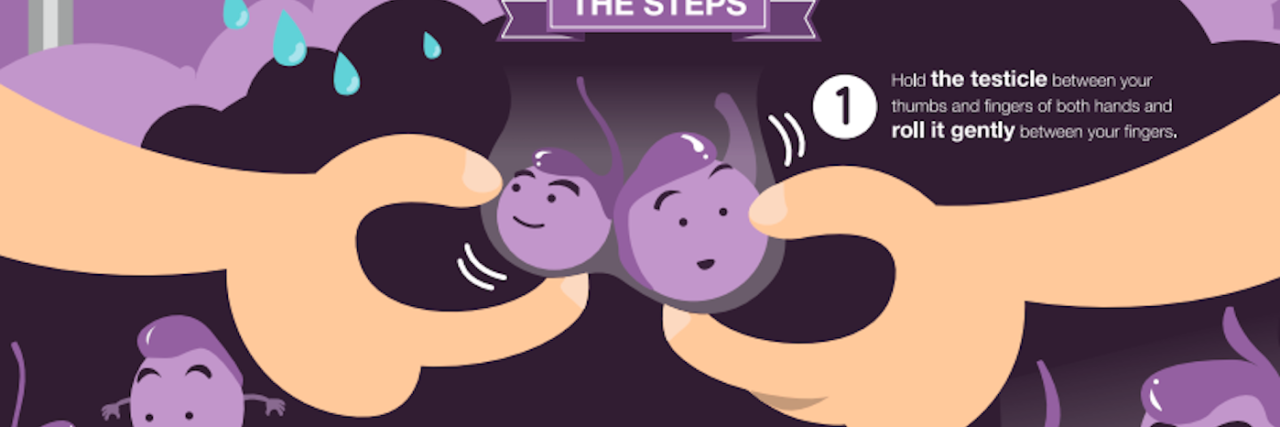More than a decade ago, when I was 31 years old, everything was going great. I had a successful career in marketing, and I had just gotten married. In fact, it was my newlywed wife who, during an act of intimacy, noticed a lump in my groin. Turns out one of my testicles was significantly larger than the other. It was that moment that changed my life forever.
As men, we’re not taught to perform testicular self-exams in the same way we encourage women to perform breast check-ups. It never even occurred to me to check and see if my testicles were “irregular” in any fashion. What was I supposed to be looking for in the first place? I had no idea that testicular cancer is not only the most common cancer found in men age 15 -44 but also one of the fastest spreading of all cancers. And according to our new CACTI study, I wasn’t alone. Nearly half of men surveyed don’t perform lifesaving self-exams. And 35 percent don’t know how.
After an evening of extensive Google searches, we decided I should visit a doctor in the morning. The next day, I was diagnosed by a urologist with testicual cancer and several days later underwent an orchiectomy, which is the removal of the testis via the lower abdomen wall. Because the cancer may have spread, I also had to undergo extensive radiation treatment. Over the course of weeks, the process left me skinny, frail and cold. I was a mere shadow of my former self.
Despite being the most prevalent cancer found in young men, testicular cancer is still relatively rare. Fewer than 9,000 men get it a year in the U.S. This helped explain why so few resources were available to me. No one could confidently answer my questions or provide any form of support.
All this was a real eye-opener for me. When questionable websites are all you have for support with your near-fatal cancer, you know something is very wrong with the system. Simple questions went unanswered: why was I receiving so much radiation when I’d received a stage one cancer diagnosis? How was losing a testicle going to change my body chemistry and identity as a man? Would I be able to have children? Where could I go for support – if only to share my fears and frustrations with others going through the same ailment?
It quickly became clear to me that we have a significant testicular-cancer awareness problem in this country. Every post-pubescent male needs to know they need to perform monthly self-exams and get educated on how to conduct them. This essentially was the impetus for me creating Rouse Condoms and Pariah Underwear. Each package comes with a testicular self-exam flyer, to encourage men to take ownership of their health with a disease that’s too infrequently discussed – or discovered. So make certain you review the flyer and share it with others.
It’s also why I formed the Center for Advocacy for Cancer of the Testes International (CACTI). My hope is every new testicular cancer patient will not have to walk in my shoes. They will have access to more qualified healthcare personnel who can make a quick and accurate diagnosis and better treatment options thereby minimizing the severity of their treatment and reducing any long-term side effects to ultimately allow them to live better lives.
There are still days where I feel beaten down, in excruciating pain and bruised from the ongoing treatment. My body is constantly changing physically, like a superhero mutated by radiation. Yet I’m thankful to be alive. Deep down I’d be foolish to think the future would be any different, but as the saying goes, “Straight roads do not make skillful drivers.” So, if I need to feature cartoon testicles in a flyer to get my points across, so be it!

